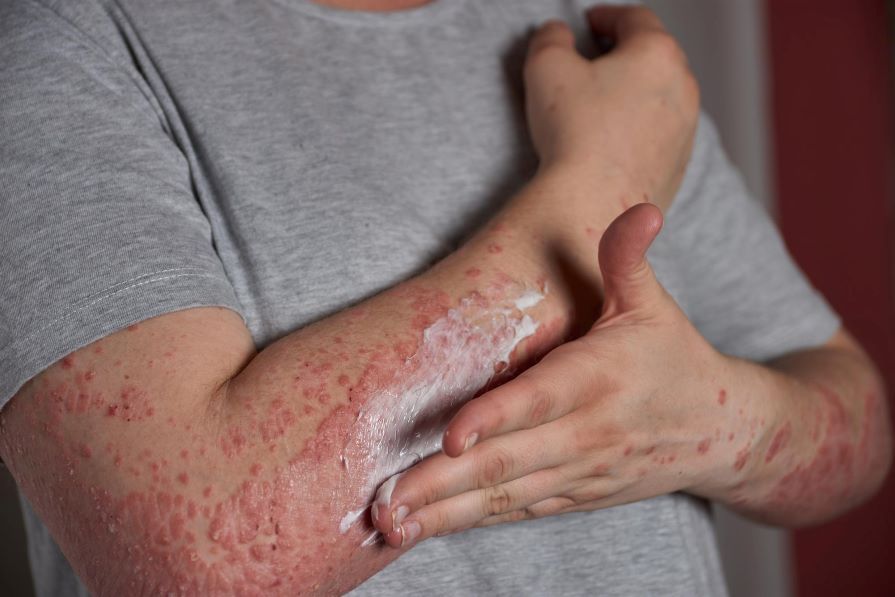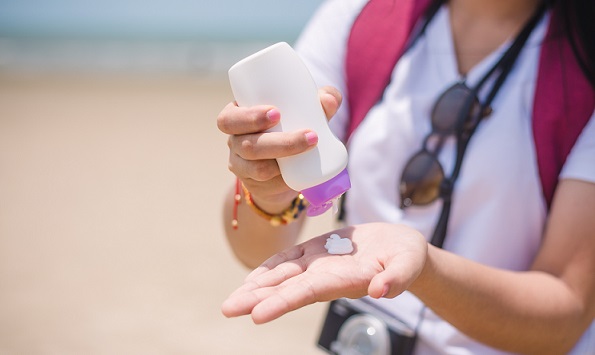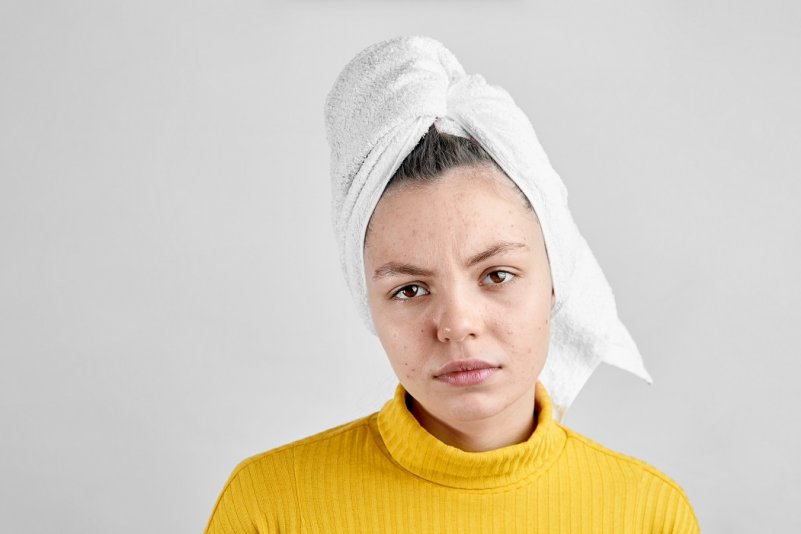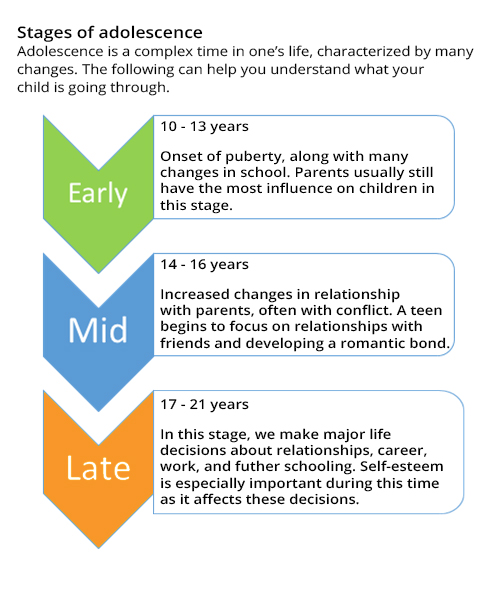
Category: Our Blog

Obesity has frequently been dubbed an epidemic in the United States and is credited with causing or contributing to a wide variety of other chronic ailments, including cardiovascular disease and osteoarthritis. However, it’s also a frequent comorbidity for another common set of connected conditions – psoriasis and psoriatic arthritis.
According to 2015-2016 Centers for Disease Control and Prevention statistics, obesity impacts approximately 93.3 million American adults. And, even though the exact incidence among individuals with psoriatic disease isn’t known, data shows obesity is prevalent in this patient population.
Despite its frequent occurrence, questions still exist about the role obesity plays in contributing to psoriatic disease and its severity. There’s also been growing discussion around whether weight loss and management can be an effective therapeutic avenue.
At a minimum, many industry experts agree addressing obesity can be a vital arrow in the quiver for treating psoriatic disease.
“Obesity is a very common comorbidity of psoriasis and psoriatic arthritis,” says Mark Lebwohl, M.D., dermatology professor at Icahn School of Medicine at Mount Sinai. “It has a negative impact on the response to therapies so that many therapies don’t work as well.”
In fact, he says, existing research and clinical care interventions have shown patients who lose weight do respond better to psoriasis treatment.
The impact of obesity
Obesity is known to cause low-grade inflammation. Fat cells produce pro-inflammatory mediators, such as tumor necrosis factor-α or interleukin 6, which can contribute to the inflammation associated with psoriasis and psoriatic arthritis.
“What we do know is that our adipose tissue – or fat – is not inert. The latest research has shown it’s actually endocrinologically active,” says April Armstrong, M.D., MPH, associate dean of clinical research at Keck School of Medicine at the University of Southern California, Los Angeles. “There are certain types of adipokines or cytokines that are fat cells that actually help perpetuate the level of inflammation. They secrete a number of substances that make inflammation worse in our patients with psoriasis.”
Overall, she says, it’s clear obesity contributes to the exacerbation of psoriasis even if there’s a lack of clarity around whether it directly contributes to the development of the condition.
There is a growing body of evidence, however, that does point to a causal relationship. A study published in Therapeutic Advances in Musculoskeletal Disease revealed the incidence of psoriatic arthritis grew with an increasing body mass index.1 Additionally, an Annals of the Rheumatic Diseases study produced similar results. According to the study findings, after age 18 psoriatic arthritis risk jumps 10% for every 10-pound weight gain.2 This impact points to a need for discussing the relationship between weight and psoriasis with young patients as soon as possible.
Obesity-related treatment concerns
In addition to augmenting psoriasis and psoriatic arthritis severity, obesity adds a different dimension to adequately treating patients with medication, Dr. Armstrong says. It can affect how dermatologists choose to treat patients in two major ways.
“Not only does obesity have a direct impact in terms of our therapeutic options,” she says. “But, we also need to pay attention to the dose of particular medications we give to patients.”
As the majority of psoriasis and psoriatic arthritis medications are dose-dependent, obese patients could be at risk for being undertreated. Carefully consider a patient’s weight when determining a prescription. They will need enough medication to reach clinical efficacy.
There are, however, some existing treatment options that carry added risks for obese patients, Dr. Lebwohl says. For example, obese individuals have a higher risk of liver fibrosis with methotrexate and will need frequent liver biopsies to monitor their hepatic health. Additionally, he says, being obese also increases a patient’s risk of kidney damage with cyclosporine by roughly 70%.
Most injectable drugs are also less effective in obese patients, he says. Infliximab (Remicade, Janssen), which is dosed by the kilogram, and ustekinumab (Stelara, Janssen), which is double-dosed for any patient over 220 pounds, are exceptions as they produce greater skin clearing with higher doses. Newer drugs, including interleukin-17 and interleukin-23 blockers, are also proving effective in treating these skin conditions in obese patients.
Weight loss as prevention still debatable
Given the connection between the inflammation caused by obesity and psoriasis and psoriatic arthritis, the discussion exists about whether controlling or losing weight can be a preventive measure.
“It’s been long-debated about whether obesity leads to psoriasis or whether psoriasis leads to obesity,” Dr. Lebwohl says. “Are our patients indoors more and not exercising as much because they have psoriasis and have joint pain, or are they obese and, then, get psoriasis?”
Dr. Armstrong agrees. Currently, she says, research doesn’t support considering weight loss as a way to side-step psoriatic disease as not every patient with psoriasis or psoriatic arthritis is obese. Instead, she said, weight loss is considered as therapeutic measure. And, recent investigations bolster that assertion.
According to research published in Arthritis Research & Therapy, losing weight produced a significantly beneficial effect on disease activity in joints, connective tissues, and skin.3 On average, study participants lost approximately 41 pounds. Based on the weight decrease, the number of patients with minimal disease activity increased from 29% to 54% and more than 46% saw an improvement in skin clearing.
Intervention options
Overall, treatment options that directly address obesity and encourage weight loss have been found to have ameliorative effects on a patient’s psoriasis and psoriatic arthritis. To date, these two strategies have produced positive results:
Lifestyle interventions: Recommending changes in exercise, diet, and alcohol consumption can significantly impact psoriasis severity. A study published in the British Journal of Dermatology showed a significant reduction in psoriasis severity after patients implemented diet and exercise changes.4 Greater improvements in psoriasis were seen in patients who lost more weight, but weight loss is typically capped at 5% to 10% of overall body weight. Long-term effectiveness is also considered low.
Bariatric surgery: This procedure can have long-term effects, leading to an additional 16%-to-30% weight loss reduction compared with lifestyle interventions. Research shows levels for GLP-1 agonists that induce weight loss can spike as much as 20 times in patients who undergo a gastric bypass procedure.5
Patient management
While screening obese psoriasis patients for psoriatic arthritis at every visit is critical for proper management, Dr. Armstrong says, it’s equally important to discuss how obesity affects psoriasis. The topic should be approached in a sensitive and supportive manner. She recommends establishing a good relationship with open communication first and, then, introducing the idea of weight loss.
“Strive to talk about weight loss in a measured way and in a pace the patient is comfortable with,” she says. “That way, it’s something they can tolerate and won’t have much trouble maintaining.”
Dr. Lebwohl agrees, adding it’s important to include how their obesity and psoriasis can also contribute to other health problems, such as an increased heart attack risk. Any conversation should include a discussion of both diet and exercise, and how patients can change their daily routines.
Many patients might push back, Dr. Armstrong cautions, so it’s important to repeat the message patiently and consistently over time.
“If you tell the patient you are there for them, in the long run – even if they disagree with their treatment options – you will be able to develop a successful therapeutic relationship,” Dr. Armstrong says.
Disclosures:
Drs. Lebwohl and Armstrong report no relevant disclosures.
References:
1. Nikiphorou E, Fragoulis GE. Inflammation, obesity and rheumatic disease: common mechanistic links. A narrative review. Ther Adv Musculoskelet Dis. 2018;10(8):157-167.
2. Li W, Han J, Qureshi AA. Obesity and risk of incident psoriatic arthritis in US women. Ann Rheum Dis. 2012;71(8):1267-72.
3. Klingberg E, Bilberg A, Björkman S, et al. Weight loss improves disease activity in patients with psoriatic arthritis and obesity: an interventional study. Arthritis Res Ther. 2019;21(1):17.
4. Mahil SK, Mcsweeney SM, Kloczko E, Mcgowan B, Barker JN, Smith CH. Does weight loss reduce the severity and incidence of psoriasis or psoriatic arthritis? A Critically Appraised Topic. Br J Dermatol. 2019;
Original article from Dermatologytimes.com
 01
01
To learn more about this event and to register your spot – CLICK HERE!

A team of Canadian researchers is among the first in the world to test whether fecal transplants could help treat the deadliest form of skin cancer, melanoma.
Twenty patients with advanced stage disease are part of the phase one study out of the Lawson Health Research Institute in London, Ont. Participants have been prescribed pills filled with purified fecal bacteria, and they will then undergo immunotherapy in hopes of stimulating their bodies to kill cancer.
The hope is that transplanting healthy gut bacteria to cancer patients will boost their immune systems and make the immunotherapy drugs more effective. In turn, their bodies will be primed to destroy cancer cells.
The study is still in its early stages, but scientists have already seen promising signs the immune cells are revving up in the first two patients.
“We are getting some signs that the immune system is responding to these transplants,” said Dr. Michael Silverman, an associate scientist with the hospital. “We’re excited but we don’t want to give off the impression that this is a proven phenomenon yet, because it’s too early.”
Click here to read the full article.

Chances are your approach to sun protection has changed in recent years. Thanks to organizations like The Skin Cancer Foundation and our allies in the media who help spread our message, public awareness about skin cancer is at an all-time high. I was struck by this shift as I read through magazines that once promoted tanning oils and are now filling their pages with boundless sunscreen options and cautioning against skin cancer.
I spoke with a veteran beauty journalist who has served the public through her career by reporting on the effects of this disease. April Franzino, beauty director for magazine brands Good Housekeeping, Woman’s Day and Prevention, shared her insights on how far we’ve come and how sun-protective behaviors continue to evolve. Read more.
Credit: By Arielle Grabel, skincancer.org

Given recent news reports, you may be wondering if sunscreens are safe for you and your family, as well as the planet. Elizabeth Buzney, MD, an expert and member of our Photobiology Committee, helps sort it all out.
By Lorraine Glennon
The first question that sprang to mind for many people after the February 2019 announcement that the U.S. Food and Drug Administration (FDA) will be issuing new regulations governing the sale and use of sunscreens was, “Sunscreen is a drug?” Cosmetics and supplements such as vitamins and herbal remedies are not analyzed by the FDA for safety and effectiveness, so it may be a surprise to learn that the agency has classified sunscreens as over-the-counter medications since 1978 and regulates them as such.
Yet according to former FDA director Scott Gottlieb, whose statement emphasized that broad-spectrum sunscreens with a sun protection factor (SPF) of 15 or higher are critical to preventing skin cancer and protecting the skin from sun damage, “some of the essential requirements for these preventive tools haven’t been updated in decades.” Hence the agency’s decision to reevaluate several of sunscreens’ key ingredients and ensure that they are GRASE — an acronym for “generally recognized as safe and effective.”
Credit: Sun & Skin News
Follow these tips to protect your skin from the damaging effects of sun exposure and reduce your risk of skin cancer.
Credit: America Academy of Dermatology

Check out this recent article in Chatelaine magazine describing how our very own dermatologist Dr. Max Sauder diagnosed a skin cancer in someone who had come to our clinic looking for cosmetic treatment of a lesion. This actually happens almost weekly at our clinic! Note that our expert dermatologists not only diagnose and treat medical conditions in our medical department, but also oversee (and perform themselves all Botox and Filler injection treatments) our cosmetic clinic and ensure that patients receive world-class care there as well.

Just when our appearance becomes so important and we want to look our best, acne can begin. Some teens seem unfazed by acne. For most teenagers, however, this especially visible skin problem can be upsetting.
If your teenager seems upset by acne, here’s how you can help.
1. Take acne seriously
Telling your teen that the pimples, blackheads, and other blemishes will eventually clear on their own may do more harm than good. While waiting for acne to clear on its own, your teen’s self-esteem could plummet. Many studies show that having acne tends to lower self-esteem.
Kids who have acne can also be bullied. Classmates may call them names like “pizza face” or “crater face.” They may tell them to wash their face. Bullying can also lower self-esteem.
Studies show that self-esteem rises when acne clears. Treatment can help clear acne.
Treating acne now can also prevent acne from worsening. Without treatment, acne sometimes becomes severe. When severe acne clears, it can leave permanent acne scars.
2. Be cautious about reminding your teen to use acne treatment
For treatment to work, your teen must use it. To help, you may want to remind your teen to use the acne treatment. Do this cautiously.
In a small study, dermatologists found that when parents reminded their teens every day to use their acne medicine, the approach backfired. The teens said the daily reminders felt like “nagging.” This caused the teens to use their acne treatment less often. Fewer reminders from parents may be more effective.
What may help is to keep all of your teen’s dermatology appointments. Studies show that most people, including teenagers, are more likely to follow a treatment plan right before and after an appointment.
3. Try to reduce stress
During the teenage years, just about everything can seem stressful. That said, anything you can do to reduce stressful situations can help. Stress can cause acne to flare.

4. Watch for signs of depression
Having acne can affect how teens and even adults feel about themselves. Many studies have shown that having acne can lead to depression, anxiety, or both. The longer one has acne, the more likely these problems are to occur.
Studies have also found that clearing acne can relieve depression and anxiety.
Because depression can have such a devastating effect on one’s life, it’s important for parents to recognize the signs, which may include:
- Sadness that lasts for two weeks or longer
- Loss of interest in activities that your teen once enjoyed
- Tendency to avoid social activities, even with people their own age
If you notice any of these behaviors while your teen has acne, it may be time to see a dermatologist for acne treatment. Thanks to advances in treatment, virtually every case of acne can be successfully treated.
Treating acne may prevent low self-esteem, depression, and anxiety.
5. Let your teen meet with the dermatologist alone
If your teen sees a dermatologist, giving your teen time alone with the dermatologist can help everyone. It allows the dermatologist to find out want your teen wants and create a bond. This can be a lot harder to do when a parent is in the exam room.
Most teenagers get acne. If the acne upsets them, having someone who can help them see clearer skin is sure to be appreciated.
Credit: American Academy of Dermatology
